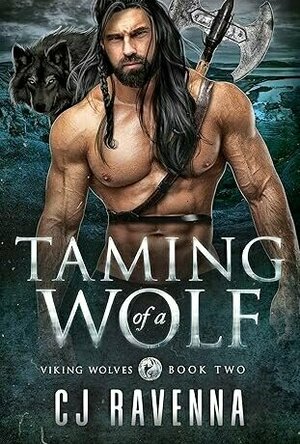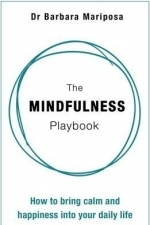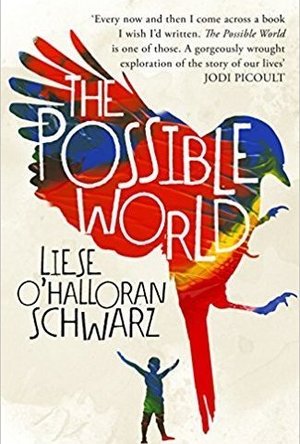
The Possible World
Book
An astonishing, deeply moving novel about the converging lives of a young boy who witnesses a brutal...
Historical Fiction
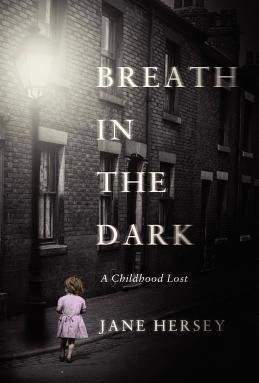
Breath in the Dark
Book
Settling down on the bed, I stroked the plump, still body, watching my mother's face just to make...
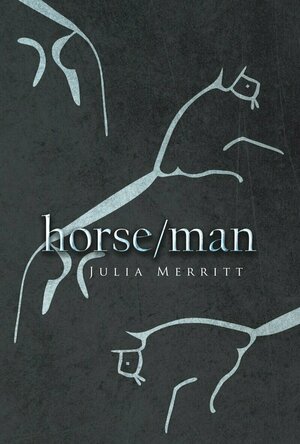
horse/man
Book
What happens when your entire identity revolves around a way of life that is becoming obsolete? ...
Literary Fiction
Merissa (13765 KP) rated Taming of a Wolf (Viking Wolves #2) in Books
Jun 6, 2025
It is a case of instalust for them both when they first meet, and I loved how Anders told Jamie immediately what he was and what Jamie also was. Anders' apprehension about telling others was 100% justifiable, the same as Jamie's confidence that his friends would believe differently. Their story is full of emotion and hope, even as darkness and depression claw at them both.
Honestly? I am LOVING these stories. And Anders having the opportunity to make his past right again is something I think everyone has wanted at one time or another. There was so much to this story, and I loved every moment.
The best advice I can give you is sit and savour every moment of this book. It will make you laugh, and it will make you cry - or it did me, at least! I HIGHLY RECOMMEND this book and the series, and look forward to returning for Operation Loren.
** Same worded review will appear elsewhere. **
* A copy of this book was provided to me with no requirements for a review. I voluntarily read this book; the comments here are my honest opinion. *
Merissa
Archaeolibrarian - I Dig Good Books!
May 27, 2025
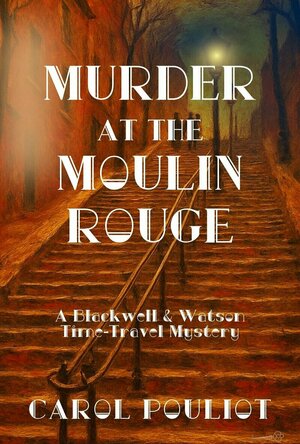
Murder at the Moulin Rouge (The Blackwell & Watson Time-Travel Mysteries #5)
Book
Paris, 1895. When a cancan dancer at the Moulin Rouge falls to her death from the top of one of...
Crime Mystery Time Travel
Haley Mathiot (9 KP) rated Gateway to Dreamworld in Books
Apr 27, 2018
by Brenda Estacio
Rating: 3.5/5
My Summary: Jean and Brad have a wonderful life with wonderful kids. But through several awful things that happen to them, like the car accident that put Pete in a wheelchair for his life and the depression that Brad experienced from it, the family has slipped apart. Jason, the oldest son, goes up into his hideout in the Lighthouse to try to escape the stress of his family falling apart. While up there, a stroke of lightning hits the lighthouse and creates a magical Gateway from the real world to Dreamworld, a place that only the pure of heart can access in their dreams. Jason has to decide whether or not he wants to stay in Dreamworld for the rest of his life, where everything is perfect and nobody gets sick or dies, or whether he wants to stay in the real world with his family. When Jason finds out that his mom is pregnant and ill, he is sure she is going to die. Then Jason finds out that he can save his mom and heal his brother by taking his family to Dreamworld—but he has to do it before the Gateway closes up forever…
My thoughts: Gateway to Dreamworld is an interesting yet odd read. It’s fast paced, covering a whole beginning of a relationship, two births, a death and a few other major events in the first few chapters and moving through important story lines very quickly—almost too quickly. I wished the author had slowed down and taken more time developing the story line in the first 100 pages, rather than just telling it all so fast—the first ten chapters or so felt rushed, as if she was in a hurry to get it over with and explain it so she could move on to what she wanted to write about. The pdf that I read from was 358 pages, and it got really interesting on chapter 13, page 118. That being said, it wasn’t that I didn’t enjoy the first 100 pages, they were very interesting and showed the life of a realistic family.
The only thing about this book that I didn’t like was that it had what I call “happy-land” syndrome—everything is working out perfectly, or is resolved too quickly. The father slipped into depression, and it was totally expected and realistic, however he was jerked out of it too fast (Maybe only people who have experienced depression can testify, but it doesn’t go away that quickly—it takes months of talking, treatment, and sometimes medication, not one talk with a pastor and a few tears.). When the grandma died, the character’s reactions were realistic—but family members “got over it” so fast that it left me frowning. This was all in the earliest part of the book, again I felt that the author just wanted to be done with the explaining part so she could move onto the interesting part.
Plot: this was a science fiction book, and it’s been a long time since I’ve read a sci fi. I loved getting lost in the idea of Dreamworld and The Gateway and the fear of the Unknown was horrific. During one of the crucial moments at the end of the book I could feel my blood speed up as I read it. The end of this book was a bit of a shock, not at all what I expected. I’m not sure if I was disappointed or satisfied, but it was certainly intriguing.
Characters: I personally didn’t connect with the characters very well because they were two adults and two young children, however my favorite character would have to be Pete, the little brother who gets paralyzed. He’s such a brave kid, trusting of his brother, and loving to his parents.
The Writing: The writing seemed very formal—I don’t think there was a single contraction in the whole book, and the character’s lines were detailed, specific, honest, and humble— they almost felt like robots the way they were never greedy, never mean. The word that came to mind as I read it was “quaint,” because it was told from third person omniscient perspective, and there wasn’t a lot of dialogue.
Recommendation: I think ages 9-14 would enjoy this book a lot more than I did (not to say I didn’t) because of the young characters and the science fiction aspect. However, there were a few scenes of husband and wife relationship that were not detailed, but were not suitable for an eleven or twelve-year-old either. It’s hard to place a specific age on this book, but I will say that anyone who read and enjoyed Madeleine L'Engle’s Many Waters (A Wrinkle In Time series) will enjoy this book as well.
All in all, I immensely enjoyed this book and found myself needing to finish it, I couldn’t stop in the middle. It was highly addicting and exciting, and I look forward to more from this author.
Thank You to Brenda Estacio for the e-book to review!
~Haleyknitz
Hazel (1853 KP) rated The Mindfulness Playbook in Books
Dec 23, 2017
Discover how to become healthier, happier, and more resilient with The Mindfulness Playbook by psychology expert Dr Barbara Mariposa. Written with the general public in mind, Mariposa tackles thoughts, feelings and situations that crop up in everyday life and provides effective coping strategies that can be employed anytime, anywhere. Full of inspiring solutions and practical skills, this book advises and supports as readers bring calm and happiness back into their lives. “By engaging with the content of this book, you will learn unique tools and skills that can bring you greater energy, freedom and clarity.”
Mindfulness is about living in the moment rather than dwelling on the past or worrying about the future. By regularly employing mindfulness, life, in theory, should become much simpler. Unfortunately, many people suffer from anxiety and depression; therefore, mindfulness can be a difficult concept to tackle. Mariposa breaks down the book into eight units and explains simple, proven techniques that, with daily practice, anyone can make a habit of using.
Dr Barbara Mariposa developed the Mind Mood Mastery programme and uses many of her ideas from this as the basis of her book. Each unit is broken down into manageable chunks that are easy to interpret and are relevant to the 21st century. Each unit contains a motto, which expresses the theme of the information provided and a task for people to do in their own time. There are also pages containing sections to write answers to questions Mariposa poses throughout the text.
Many of the tools Mariposa introduces can be shortened to acronyms, making them easy for people to remember in moments of anxiety or stress. One example is “BELL- Breathe. Expand. Listen. Look.” By remembering the letters of this power tool, it can be brought to mind in a difficult situation. It reminds the person to take a deep breath, notice what is going on around them, listen to what they can hear, and focus on something they can see. This helps to stop thoughts from spiralling into the past or future and causing lots of anxiety.
The problem with the term “mindfulness” is it has become an overused term and often replaces the word “relaxing”, for example, on colouring books. Dr Mariposa keeps to the scientific definition of the word (a mental state achieved by focusing one's awareness on the present moment, while calmly acknowledging and accepting one's feelings, thoughts, and bodily sensations, used as a therapeutic technique) and is sympathetic to the reader, acknowledging that life can be hard and mindfulness can be difficult to maintain.
Within each unit is a section dubbed “The Science Bit”, which, it goes without saying, contains scientific information. Mariposa explains in layman’s terms how the brain works and what causes anxiety and depression. She also demonstrates with diagrams how to rewire the brain and alter thought processes. It is interesting to learn that the brain physically changes shape as mindfulness techniques are practised.
For those who want a simple, easy to follow book about mindfulness, The Mindfulness Playbook is definitely the one to purchase. The balance between science and everyday life is on point, and the language style is appropriate for all readers. Quotes from famous names break up the text into manageable sections and it is easy to dip in and out of the book as needed. Dr Barbara Mariposa has produced a superb self-help guide and, with hope, it will help everyone who reads it.
Heather Cranmer (2721 KP) rated The Program (The Program, #1) in Books
Jun 7, 2018
I'd been wanting to read this book for a long time now. The blurb really caught my attention (especially as I've suffered with major depression in the past), so when I got the chance to buy a book, this one was my choice. Luckily, it was a super fantastic read!
I like the title of this book. I like how it's really plain and simple, yet, it works. The title very much suits the book as it's pretty straight-forward about what the book's going to be about.
I like the cover for The Program. All teenagers who enter the program are made to wear yellow lemon colored scrubs. I like how it shows the uniforms.
The world building is superb! Everything is explained fantastically throughout the book. Young makes it easy to believe that one day there will be a "cure" for depression and teen suicide. There's only one bit in the world building towards the end of the book that kind of made me question its reliability. I don't want to give away spoilers though, and this could just be me over thinking things.
The pacing is spot on. From the very first sentence, this book had me hooked. I couldn't wait to see what happened next. To say I devoured this book would be an understatement.
The plot was super interesting. Teens are being taken to The Program once they become depressed. Apparently, teen suicide is contagious and an epidemic, so the only cure is The Program where memories are erased. When Sloane's boyfriend, James, gets taken into The Program, it's not long before Sloane becomes depressed and is taken in as well. Will James and Sloane remember each other or will their memories be totally erased? I thought the plot was very original, and I enjoyed every bit of it. Some of the scenes in The Program reminded me of The Matrix. I believe this book could be read as a standalone since there wasn't a major cliff hanger, but I think it'd be better read as a series.
I loved the characters! I loved how Sloane came across as just a normal teenage girl who had been through a traumatic experience. I felt that her vulnerability made her even more lovable. I also really liked James. I loved how he wanted to protect Sloane from everything. It was very evident how much James and Sloane loved each other. The only character I didn't really care for was Realm. It's not that he wasn't well written because he was. It was just that I never really felt like I could trust Realm. There's just something about him.
The dialogue was fantastic and fit in well with a young adult novel. I loved reading the dialogue between Sloane and James the best. There are innocent mentions of sex although not many. There's also some swearing and some violence, but nothing over the top.
Overall, The Program by Suzanne Young is an original story that has fantastic world building, great characters, and hits close to home. I've already bought the next book in the series.
I'd recommend this book to those aged 16+ who are after a book with an original story line and want a thrilling read.
(I purchased this book in paperback format through Amazon with my own money. I was not required to review this book).
Hazel (1853 KP) rated The Mindfulness Playbook in Books
Dec 14, 2018
Discover how to become healthier, happier, and more resilient with The Mindfulness Playbook by psychology expert Dr Barbara Mariposa. Written with the general public in mind, Mariposa tackles thoughts, feelings and situations that crop up in everyday life and provides effective coping strategies that can be employed anytime, anywhere. Full of inspiring solutions and practical skills, this book advises and supports as readers bring calm and happiness back into their lives. “By engaging with the content of this book, you will learn unique tools and skills that can bring you greater energy, freedom and clarity.”
Mindfulness is about living in the moment rather than dwelling on the past or worrying about the future. By regularly employing mindfulness, life, in theory, should become much simpler. Unfortunately, many people suffer from anxiety and depression; therefore, mindfulness can be a difficult concept to tackle. Mariposa breaks down the book into eight units and explains simple, proven techniques that, with daily practice, anyone can make a habit of using.
Dr Barbara Mariposa developed the Mind Mood Mastery programme and uses many of her ideas from this as the basis of her book. Each unit is broken down into manageable chunks that are easy to interpret and are relevant to the 21st century. Each unit contains a motto, which expresses the theme of the information provided and a task for people to do in their own time. There are also pages containing sections to write answers to questions Mariposa poses throughout the text.
Many of the tools Mariposa introduces can be shortened to acronyms, making them easy for people to remember in moments of anxiety or stress. One example is “BELL- Breathe. Expand. Listen. Look.” By remembering the letters of this power tool, it can be brought to mind in a difficult situation. It reminds the person to take a deep breath, notice what is going on around them, listen to what they can hear, and focus on something they can see. This helps to stop thoughts from spiralling into the past or future and causing lots of anxiety.
The problem with the term “mindfulness” is it has become an overused term and often replaces the word “relaxing”, for example, on colouring books. Dr Mariposa keeps to the scientific definition of the word (a mental state achieved by focusing one's awareness on the present moment, while calmly acknowledging and accepting one's feelings, thoughts, and bodily sensations, used as a therapeutic technique) and is sympathetic to the reader, acknowledging that life can be hard and mindfulness can be difficult to maintain.
Within each unit is a section dubbed “The Science Bit”, which, it goes without saying, contains scientific information. Mariposa explains in layman’s terms how the brain works and what causes anxiety and depression. She also demonstrates with diagrams how to rewire the brain and alter thought processes. It is interesting to learn that the brain physically changes shape as mindfulness techniques are practised.
For those who want a simple, easy to follow book about mindfulness, The Mindfulness Playbook is definitely the one to purchase. The balance between science and everyday life is on point, and the language style is appropriate for all readers. Quotes from famous names break up the text into manageable sections and it is easy to dip in and out of the book as needed. Dr Barbara Mariposa has produced a superb self-help guide and, with hope, it will help everyone who reads it.

Tinnitus Therapy
Medical and Health & Fitness
App
Tinnitus Therapy was specially developed for tinnitus treatment. It is quite simple: You shall...
